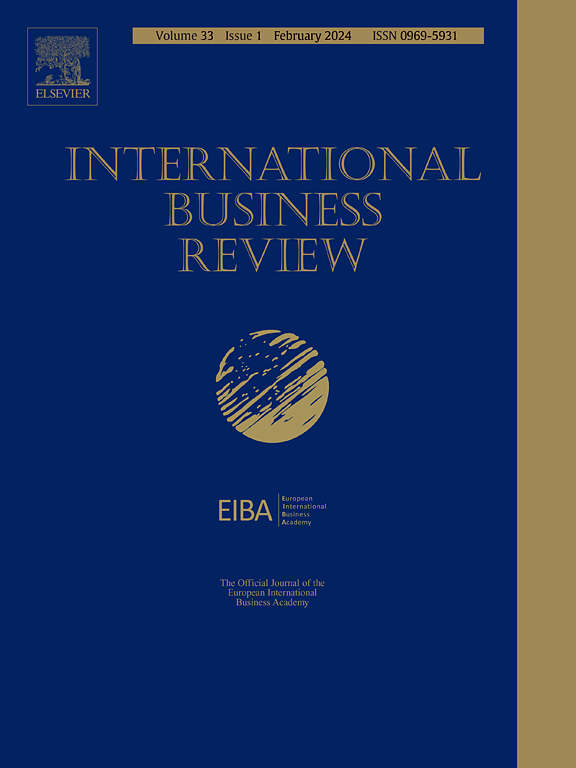Configuring international entrepreneurial orientation and dynamic internationalization capability to predict international performance
IF 5.9
1区 管理学
Q1 BUSINESS
引用次数: 0
Abstract
In recent years, the dynamics of international business have changed. This has largely been attributed to uncertainties caused by the COVID-19 pandemic and global trends towards individualistic behaviours. To remain competitive, international entrepreneurial firms (IEFs) renew their behaviours and reconfigure their capabilities. However, scholars have hitherto not uncovered the configurational interplay connecting behaviours and capabilities between the pre-and-post-COVID periods. Drawing on the configurational perspective of dynamic capability theory, we explored the configurational specificities of dynamic internationalisation capability and an international entrepreneurial orientation (IEO) as the behavioural aspect of IEFs. Adopting a longitudinal approach, we applied fsQCA to data drawn from Malaysia. Results show that whereas, in the pre-COVID period, IEFs exhibited an IEO along with threshold and disruption capabilities, in the wake of the pandemic, they are gingerly manifesting an IEO with an overwhelming priority on value-adding and consolidation capabilities suited to weather crises and secure international performance.
配置国际创业导向和动态国际化能力以预测国际绩效
近年来,国际商业的动态发生了变化。这主要归因于 COVID-19 大流行病造成的不确定性和全球个人主义行为的趋势。为了保持竞争力,国际创业型企业(IEFs)更新了自己的行为,重新配置了自己的能力。然而,迄今为止,学者们还没有揭示出 COVID 前后时期行为与能力之间的配置相互作用。借鉴动态能力理论的构型视角,我们探讨了动态国际化能力和国际创业导向(IEO)作为 IEFs 行为方面的构型特性。我们采用纵向方法,应用了来自马来西亚的数据。结果表明,在 COVID 之前的时期,IEFs 表现出一种 IEO 以及门槛和破坏能力,而在大流行病之后,它们则谨慎地表现出一种 IEO,并将绝大多数优先事项放在适合抵御危机和确保国际绩效的增值和巩固能力上。
本文章由计算机程序翻译,如有差异,请以英文原文为准。
求助全文
约1分钟内获得全文
求助全文
来源期刊

International Business Review
BUSINESS-
CiteScore
14.10
自引率
6.90%
发文量
95
审稿时长
62 days
期刊介绍:
The International Business Review (IBR) stands as a premier international journal within the realm of international business and proudly serves as the official publication of the European International Business Academy (EIBA). This esteemed journal publishes original and insightful papers addressing the theory and practice of international business, encompassing a broad spectrum of topics such as firms' internationalization strategies, cross-border management of operations, and comparative studies of business environments across different countries. In essence, IBR is dedicated to disseminating research that informs the international operations of firms, whether they are SMEs or large MNEs, and guides the actions of policymakers in both home and host countries. The journal warmly welcomes conceptual papers, empirical studies, and review articles, fostering contributions from various disciplines including strategy, finance, management, marketing, economics, HRM, and organizational studies. IBR embraces methodological diversity, with equal openness to papers utilizing quantitative, qualitative, or mixed-method approaches.
 求助内容:
求助内容: 应助结果提醒方式:
应助结果提醒方式:


